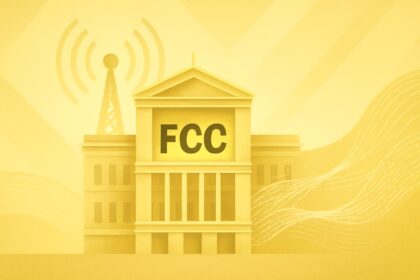Microsoft’s decision to elevate Judson Althoff as CEO of the commercial business signals a concerted effort to unify its go-to-market operations and accelerate AI-driven growth. This realignment aims to enhance customer engagement across commercial and public sectors by leveraging AI capabilities more effectively. !-- wp:paragraph -->
Contents
FinOracleAI — Market ViewExpanding Use of CEO Titles Within MicrosoftFinOracleAI — Market ViewAlthoff’s Career and CompensationExpanding Use of CEO Titles Within MicrosoftFinOracleAI — Market ViewAlthoff’s Career and CompensationExpanding Use of CEO Titles Within MicrosoftFinOracleAI — Market ViewJudson Althoff Named CEO of Microsoft’s Commercial BusinessAlthoff’s Career and CompensationExpanding Use of CEO Titles Within MicrosoftFinOracleAI — Market View
- Opportunities: Streamlined leadership could improve sales and marketing synergy, driving revenue growth in cloud and AI services.
- Risks: Integration challenges across diverse teams may temporarily disrupt operations during transition.
- Enhanced focus on AI positions Microsoft competitively amid rapid technological shifts.
- Leadership continuity with Althoff’s extensive experience supports stable execution.
FinOracleAI — Market View
Microsoft’s decision to elevate Judson Althoff as CEO of the commercial business signals a concerted effort to unify its go-to-market operations and accelerate AI-driven growth. This realignment aims to enhance customer engagement across commercial and public sectors by leveraging AI capabilities more effectively. !-- wp:paragraph -->- Opportunities: Streamlined leadership could improve sales and marketing synergy, driving revenue growth in cloud and AI services.
- Risks: Integration challenges across diverse teams may temporarily disrupt operations during transition.
- Enhanced focus on AI positions Microsoft competitively amid rapid technological shifts.
- Leadership continuity with Althoff’s extensive experience supports stable execution.
Expanding Use of CEO Titles Within Microsoft
Under Satya Nadella’s leadership since 2014, Microsoft has increasingly appointed CEO titles to leaders of key divisions and subsidiaries. Notable examples include LinkedIn, acquired in 2016, and the AI-focused group led by Mustafa Suleyman, formerly of DeepMind. GitHub, acquired in 2018, maintained a CEO until recently. !-- wp:paragraph -->FinOracleAI — Market View
Microsoft’s decision to elevate Judson Althoff as CEO of the commercial business signals a concerted effort to unify its go-to-market operations and accelerate AI-driven growth. This realignment aims to enhance customer engagement across commercial and public sectors by leveraging AI capabilities more effectively. !-- wp:paragraph -->- Opportunities: Streamlined leadership could improve sales and marketing synergy, driving revenue growth in cloud and AI services.
- Risks: Integration challenges across diverse teams may temporarily disrupt operations during transition.
- Enhanced focus on AI positions Microsoft competitively amid rapid technological shifts.
- Leadership continuity with Althoff’s extensive experience supports stable execution.
“Our success depends on enabling commercial and public sector customers and partners to combine their human capital with new AI capabilities to change the frontier of how they operate,” Nadella wrote. “To accelerate this, we will increasingly need to bring together sales, marketing, operations, and engineering to drive growth and strengthen our position as the partner of choice for AI transformation.”Althoff’s Career and Compensation
Judson Althoff joined Microsoft in 2013 from Oracle, initially serving as president of Microsoft’s North America business. Prior to this promotion, he was executive vice president and chief commercial officer. In the fiscal year 2024, Althoff earned over $23 million, placing him among the highest-paid executives at Microsoft. !-- wp:paragraph -->Expanding Use of CEO Titles Within Microsoft
Under Satya Nadella’s leadership since 2014, Microsoft has increasingly appointed CEO titles to leaders of key divisions and subsidiaries. Notable examples include LinkedIn, acquired in 2016, and the AI-focused group led by Mustafa Suleyman, formerly of DeepMind. GitHub, acquired in 2018, maintained a CEO until recently. !-- wp:paragraph -->FinOracleAI — Market View
Microsoft’s decision to elevate Judson Althoff as CEO of the commercial business signals a concerted effort to unify its go-to-market operations and accelerate AI-driven growth. This realignment aims to enhance customer engagement across commercial and public sectors by leveraging AI capabilities more effectively. !-- wp:paragraph -->- Opportunities: Streamlined leadership could improve sales and marketing synergy, driving revenue growth in cloud and AI services.
- Risks: Integration challenges across diverse teams may temporarily disrupt operations during transition.
- Enhanced focus on AI positions Microsoft competitively amid rapid technological shifts.
- Leadership continuity with Althoff’s extensive experience supports stable execution.
“Our success depends on enabling commercial and public sector customers and partners to combine their human capital with new AI capabilities to change the frontier of how they operate,” Nadella wrote. “To accelerate this, we will increasingly need to bring together sales, marketing, operations, and engineering to drive growth and strengthen our position as the partner of choice for AI transformation.”Althoff’s Career and Compensation
Judson Althoff joined Microsoft in 2013 from Oracle, initially serving as president of Microsoft’s North America business. Prior to this promotion, he was executive vice president and chief commercial officer. In the fiscal year 2024, Althoff earned over $23 million, placing him among the highest-paid executives at Microsoft. !-- wp:paragraph -->Expanding Use of CEO Titles Within Microsoft
Under Satya Nadella’s leadership since 2014, Microsoft has increasingly appointed CEO titles to leaders of key divisions and subsidiaries. Notable examples include LinkedIn, acquired in 2016, and the AI-focused group led by Mustafa Suleyman, formerly of DeepMind. GitHub, acquired in 2018, maintained a CEO until recently. !-- wp:paragraph -->FinOracleAI — Market View
Microsoft’s decision to elevate Judson Althoff as CEO of the commercial business signals a concerted effort to unify its go-to-market operations and accelerate AI-driven growth. This realignment aims to enhance customer engagement across commercial and public sectors by leveraging AI capabilities more effectively. !-- wp:paragraph -->- Opportunities: Streamlined leadership could improve sales and marketing synergy, driving revenue growth in cloud and AI services.
- Risks: Integration challenges across diverse teams may temporarily disrupt operations during transition.
- Enhanced focus on AI positions Microsoft competitively amid rapid technological shifts.
- Leadership continuity with Althoff’s extensive experience supports stable execution.
Judson Althoff Named CEO of Microsoft’s Commercial Business
Microsoft has promoted Judson Althoff, its top sales executive, to lead the company’s commercial business as CEO. The move consolidates critical functions including sales, marketing, and operations under Althoff’s direction, reflecting a strategic focus on expanding Microsoft’s commercial offerings. !-- wp:paragraph --> Satya Nadella, Microsoft’s CEO, announced the organizational change in an internal memo, highlighting the importance of integrating human capital with artificial intelligence to transform customer operations and growth. !-- wp:paragraph -->“Our success depends on enabling commercial and public sector customers and partners to combine their human capital with new AI capabilities to change the frontier of how they operate,” Nadella wrote. “To accelerate this, we will increasingly need to bring together sales, marketing, operations, and engineering to drive growth and strengthen our position as the partner of choice for AI transformation.”Althoff’s Career and Compensation
Judson Althoff joined Microsoft in 2013 from Oracle, initially serving as president of Microsoft’s North America business. Prior to this promotion, he was executive vice president and chief commercial officer. In the fiscal year 2024, Althoff earned over $23 million, placing him among the highest-paid executives at Microsoft. !-- wp:paragraph -->Expanding Use of CEO Titles Within Microsoft
Under Satya Nadella’s leadership since 2014, Microsoft has increasingly appointed CEO titles to leaders of key divisions and subsidiaries. Notable examples include LinkedIn, acquired in 2016, and the AI-focused group led by Mustafa Suleyman, formerly of DeepMind. GitHub, acquired in 2018, maintained a CEO until recently. !-- wp:paragraph -->FinOracleAI — Market View
Microsoft’s decision to elevate Judson Althoff as CEO of the commercial business signals a concerted effort to unify its go-to-market operations and accelerate AI-driven growth. This realignment aims to enhance customer engagement across commercial and public sectors by leveraging AI capabilities more effectively. !-- wp:paragraph -->- Opportunities: Streamlined leadership could improve sales and marketing synergy, driving revenue growth in cloud and AI services.
- Risks: Integration challenges across diverse teams may temporarily disrupt operations during transition.
- Enhanced focus on AI positions Microsoft competitively amid rapid technological shifts.
- Leadership continuity with Althoff’s extensive experience supports stable execution.













